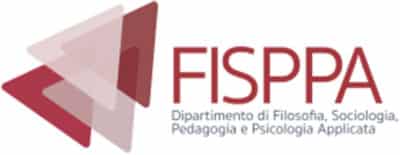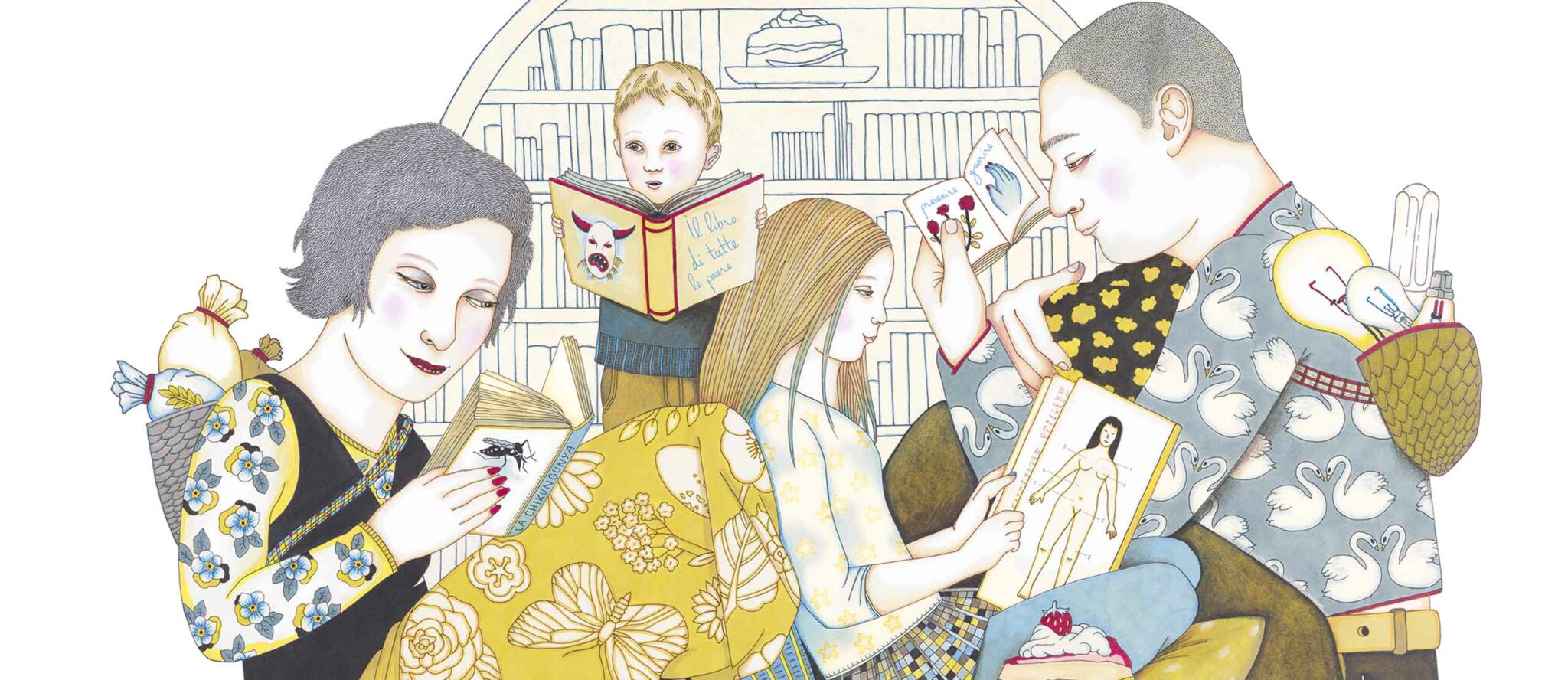
The Course in Reading and Literature for Children and Adolescents (0-18 years of age) is one of the most significant interdisciplinary training courses in Italy, and it prepares professional figures to work in formal and informal educational contexts. The course offers an all-round training experience, with educational, methodological and learning tools useful in school, extra-school, cultural and social contexts. The course focuses on international research guidelines on children literature (conferences and seminars with world-renown professors and scholars) and on sharing workshop experiences with expert reading educators, promoters, bloggers, booksellers and librarians. Participating external experts, writers, poets, translators, illustrators and editors changes every year, based on the project work’s theme.
The course units of the Course in Reading and Literature for Children and Adolescents (0-18 years of age) include lessons, workshops, meetings with authors, editors, field specialists, seminars with international scholars, and field trips to visit museums, exhibits, festivals, libraries, and bookshops specialized for children and adolescents.
Lessons are based on active learning, that is, teaching and learning are achieved through constant interaction and involvement of the attendees, discussions on work materials, case study, brainstorming, debates, discussions, peer-feedback and a group project work.
The program and educational methods allow acquiring curricular competencies and also to develop cross-cutting skills, such as design creativity, critical capacity, propensity to take initiative, etc.
Halfway between children literature theory, history of fiction, reading and visual pedagogy, and interdisciplinary educational projects, the course offers a unique training experience, in a very dynamic cultural and relational context.
The Course in Reading and Literature for Children and Adolescents (0-18 years of age) is addressed to professionals working in formal and informal educational settings (day-cares, toddlers schools, state or private kindergartens, play spaces, educational centres and services), primary, and first and second level secondary schools, libraries, media centres, publishing houses, bookshops, museums, non-profit, social and cultural organizations, educational environments that address issues such as family, relationship, social and urban difficulties.
The Course trains professional figures capable of developing – according to the target age – effective reading and literature educational projects for children and adolescents, and also projects and experiences for teachers, educators and animators.
In detail, the Course trains professional figures such as:
- kindergarten and primary school teachers;
- early childhood educators (day-cares, toddler schools, integrative services including play spaces, children and family centres and educational services in home settings);
- first and second level secondary school professors;
- graduate students;
- librarians;
- bookshop owners;
- editors;
- reading educators and promoters;
- cultural and museum operators;
- family mediators;
- social-healthcare operators;
- educational planners;
- operators of public administrations, cultural-educational and social-healthcare services, museums, exhibit galleries, festival and trade fair promoting bodies, cooperatives, NGOs, non-profit organizations and other public and private organizations that work with children, young adults and adolescents, both within school and extra-school settings.
The Course in Reading and Literature for Children and Adolescents provides training through the following interdisciplinary educational modules:
- historical-educational theories, critical-literary and aesthetic-visual methodologies to promote the design of experience, activities and environments for literary education in children and adolescents;
- educational paths for linguistic, cognitive, emotional and social development of children and adolescents, based on different literary genres and narrative forms: fiction, poetry, fairy tales, illustrated books, sensory and tactile books, scientific publications;
- innovative reading education projects in social and cultural contexts based on age groups: 0-6; 6-10; 11-14 and 14-18;
- in-depth seminars, also in English, on current topics and research addresses, which change for every edition, based on the monographic path selected: non-fiction, intermediality & transmediality, literary ecology and ecopedagogy, gender studies, multilingualism, social justice, post-human, object-oriented literary criticism.
To support the preparation and offer an innovative learning environment, easily reachable also remotely, a tech platform based on the learning management system (Moodle) will be provided.
During the course, particularly significant software and applications will also be adopted, to create digital environments that allow experimenting innovative peer-reviewing and peer-feedback activities, during which attendees will learn how to compare and assess projects and field experiences, in a constructive manner.
Specific training units based on the course modules will be created, and the educational materials and practice will be available 24/7.
Particularly useful is the course’s bibliography section, with the option of accessing and downloading a rich and articulated selection of essays, articles, bibliography trails, case study and exemplifying projects, developed both at national and international level.
The Course includes optional activities. Among them, field trips are especially appreciated, as they allow for scientific comparison beyond the academic classroom. They are the occasion to get to know places, methods, tools, and knowledge and reflection strategies, where the observation and direct interaction with certain realities (museums, exhibits, libraries and speciality bookshops), help to acquire new standpoints, assess processes and educational projects, and consolidate the knowledge acquired during the course, develop relationships with field professionals, and strengthen in-class relations. Some of the field trips presented in previous editions include: Mostra Internazionale d’Illustrazione per l’Infanzia Štěpán Zavřel at the Casa della Fantasia (Sarmede), with a workshop project specifically designed for the project work; MUDEC Museo delle Culture and interactive visit to the exhibit “DISNEY. L’arte di raccontare storie senza tempo” (Milan); Parco della fantasia e Museo interattivo Gianni Rodari (Omegna), with a literary stroll, specifically created for the course.
The general ranking of merit for the academic year 2023/24 will be published on the Italian page of this Master according to the timing provided in the Call.
Information
FAQ
Lessons will be provided in blended mode (distance and in-class learning) and include a strong interaction and dialogue between professors and attendees. There will be 6/7 remote lessons, 2 in-person lessons and 1 international conference with experiential workshops. Attendees can also choose to participate to an optional 1/2 day field trip, depending on the program.
Lessons will mainly take place on Saturday, with the following schedule: h. 9 am – 12:30 pm and 1:30 – 5 pm. The course calendar is organized so as to ensure the possibility of conciliating study and preparation with professional and family life.
Attendance of at least 75% of the lessons is mandatory.
The Master offers the chance to attend a includes a 100-hour traineeship (3 CFU). The traineeship is divided into 30 hours of indirect stages and 70 hours of direct ones, and can be done in different school and extra-school contexts, both in Italy and abroad.
It is a particularly useful and effective experience to experiment educational practices and/or project developed during the course on field, and to create new professional relations.
There will be two exams. The first – intermediate test – will include a group project work, chosen on the basis of a specific monographic path. The second – final test – will consist in the drafting and discussion of a report or project on reading education, on a specific age group (0-3; 0-6; 6-10; 11-14; 14-18), and on specific topics covered during the course.

